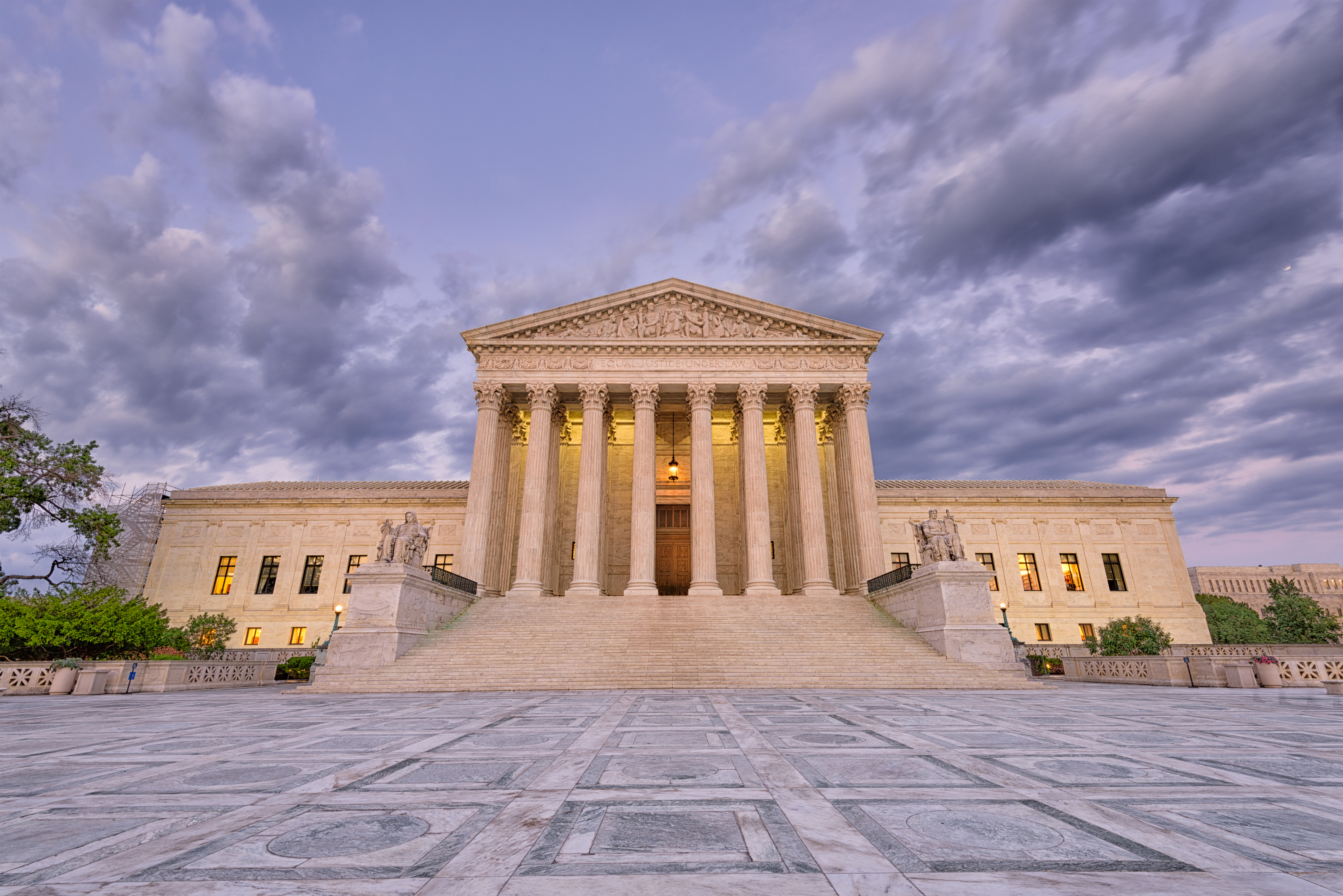Work Hard and Stay Focused: Lessons Learned Clerking for Justice Ketanji Brown Jackson

When I told my clerkship adviser in 2015 that I was hoping to land a federal district court clerkship in or around Washington, DC (my husband was threatening to leave me if I made him move cross-country again, only mostly joking), he excitedly suggested I apply to the fairly recently appointed Judge Ketanji Brown Jackson. She sounded phenomenal, and I was eager for the chance to learn from such a brilliant lawyer and jurist.
I had no idea just how incredible she is, or how lucky I would be. I began my clerkship in October 2018, after an exceptional year with Judge Paul Watford on the Ninth Circuit following my graduation from law school. I’m a big believer in taking whatever opportunities you can to glimpse behind the curtains of power, so I sought out appellate and trial-level clerkships as an aspiring litigator and as someone curious to learn more about how our halls of justice operate.
Over those two years, I not only learned how the judicial sausage is made, I also gained invaluable professional and life lessons from two of the best legal minds (and overall people) on the bench. In honor of now-Justice Jackson’s elevation to the Supreme Court, this post will focus on her—but keep an eye out for a future piece about Judge Watford.
KBJ is whip-smart, sincere, unflappable, and deeply committed to doing justice. After her confirmation to the Supreme Court, I was asked in an interview to share what “we don’t know” about her, and I struggled some, as one of her greatest qualities is her ability to be consistently and authentically herself no matter the setting. But while I may not have secrets to reveal about the 116th Justice, I can share some highlights of what I’ve learned from her: (1) protect your brand; (2) show your work; and (3) stay focused.
- Protect Your Brand, Even When It’s Hard.
KBJ often shares this advice with young lawyers: develop and protect your “brand.” This means reinforcing your reputation—whatever you want it to be—in all settings, at all times. (KBJ chose “hard worker,” a reputation she’s handily reinforced across all her professional roles.) As she put it, “do your best work for every boss, on every assignment.” That’s easier said than done, especially when you’re unhappy with a particular assignment, boss, or job. But she taught me that you never know who, perhaps years down the road, will say something nice about you to the right person at the right time—or will tank your chances at that dream job.
When I started at Zuckerman Spaeder on March 16, 2020 with a three-year-old and four-month-old, I had no idea how hard things were about to get in the coming months. We had no childcare, I’m an extrovert who needs social interaction to survive, and the dishes piled up while I despaired over how to combat systemic racism. But I’d also just started a new job, so I kept KBJ’s advice in mind and worked to cultivate my brand: I did my best work on each of my assignments while also starting a parents’ group and later co-creating an associates committee. It helped a lot that I’d chosen a firm with truly wonderful bosses and colleagues who supported me every step of the way. Now, almost two and a half years in, I feel known and respected at the firm, and I’ve gotten to do some amazing things professionally and otherwise because my colleagues thought of me to do them.
- Show Your Work.
KBJ doesn’t cut corners, especially in her rulings. She lays out every single step of her analysis so that anyone—the parties, other judges, the public—can understand how and why she reached the result she did. Not all jurists follow this lead; you’ll see opinions describing a list of factors followed by something like, “having considered these factors, the result is X.” For KBJ, that would never fly. I learned what ipse dixit means—and that I better avoid it—while clerking for her.
Now, when I’ve spent hours (or, more likely, weeks or months) in the weeds of the legal and factual issues of, say, a brief I’m working on, I try very hard to channel KBJ and not take for granted that the judge (and her clerk) will not be as versed in the issues at stake. It’s up to me to guide them, step-by-step, to the result we need.
- Stay Focused On What Needs To Be Done.
As her law clerk, I was consistently impressed with KBJ’s ability to stay hyper-focused on the job at hand, no matter what. She brushed off petty (and not so petty) slights, explaining that she simply couldn’t afford to pay attention to sideshows. As a judge, all her energy had to go toward analyzing the factual and legal issues before her, understanding the parties’ positions, and reaching the correct result. So when a lawyer told her she needed to go back to law school (true story), she simply doubled down on making sure she understood his (asinine) position, completely unfazed.
Watching KBJ ascend to the Circuit Court and then the Supreme Court further confirmed for me that her kind of determination and focus will take you far, especially when your path is littered with obstacles that others may not face.
Information provided on InsightZS should not be considered legal advice and expressed views are those of the authors alone. Readers should seek specific legal guidance before acting in any particular circumstance.
Author(s)

Casey Trombley-Shapiro Jonas
Associate
Email | +1 202.778.1855
As the regulatory and business environments in which our clients operate grow increasingly complex, we identify and offer perspectives on significant legal developments affecting businesses, organizations, and individuals. Each post aims to address timely issues and trends by evaluating impactful decisions, sharing observations of key enforcement changes, or distilling best practices drawn from experience. InsightZS also features personal interest pieces about the impact of our legal work in our communities and about associate life at Zuckerman Spaeder.
Information provided on InsightZS should not be considered legal advice and expressed views are those of the authors alone. Readers should seek specific legal guidance before acting in any particular circumstance.




